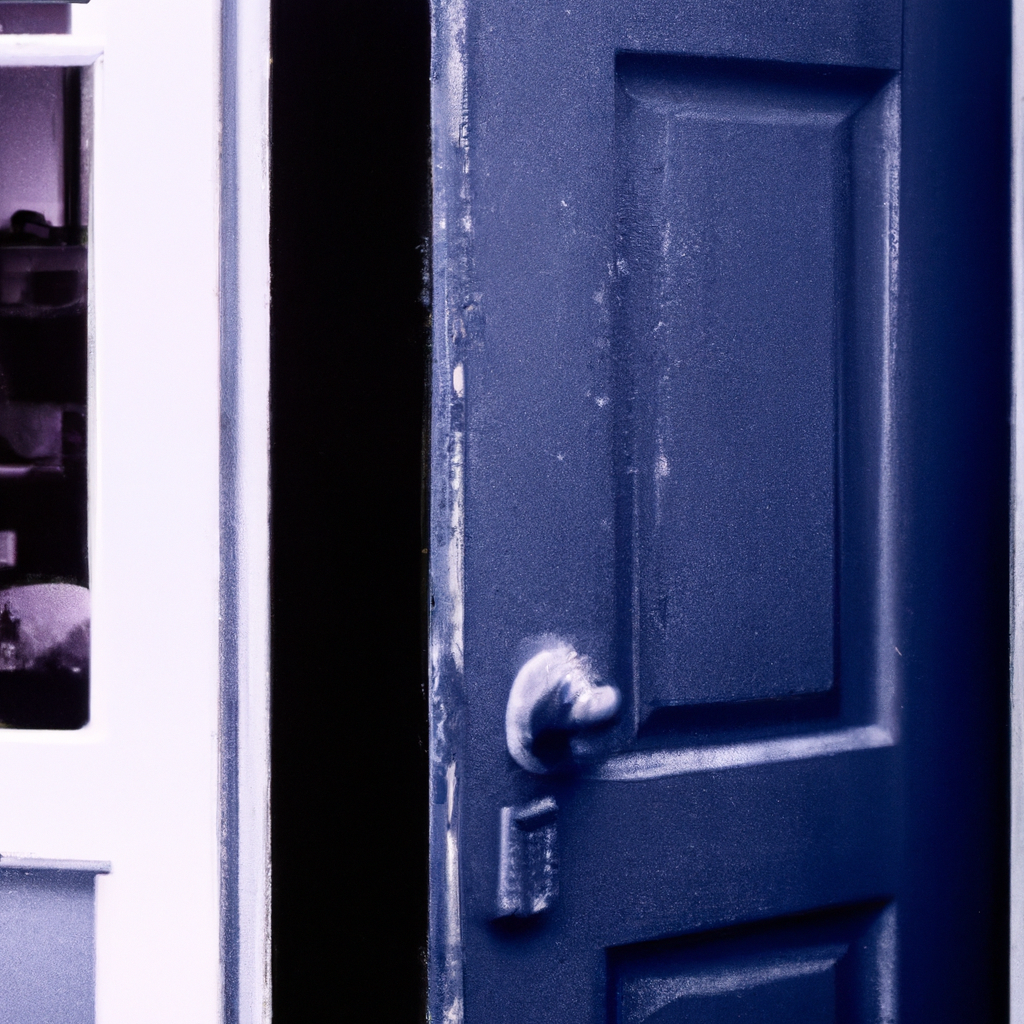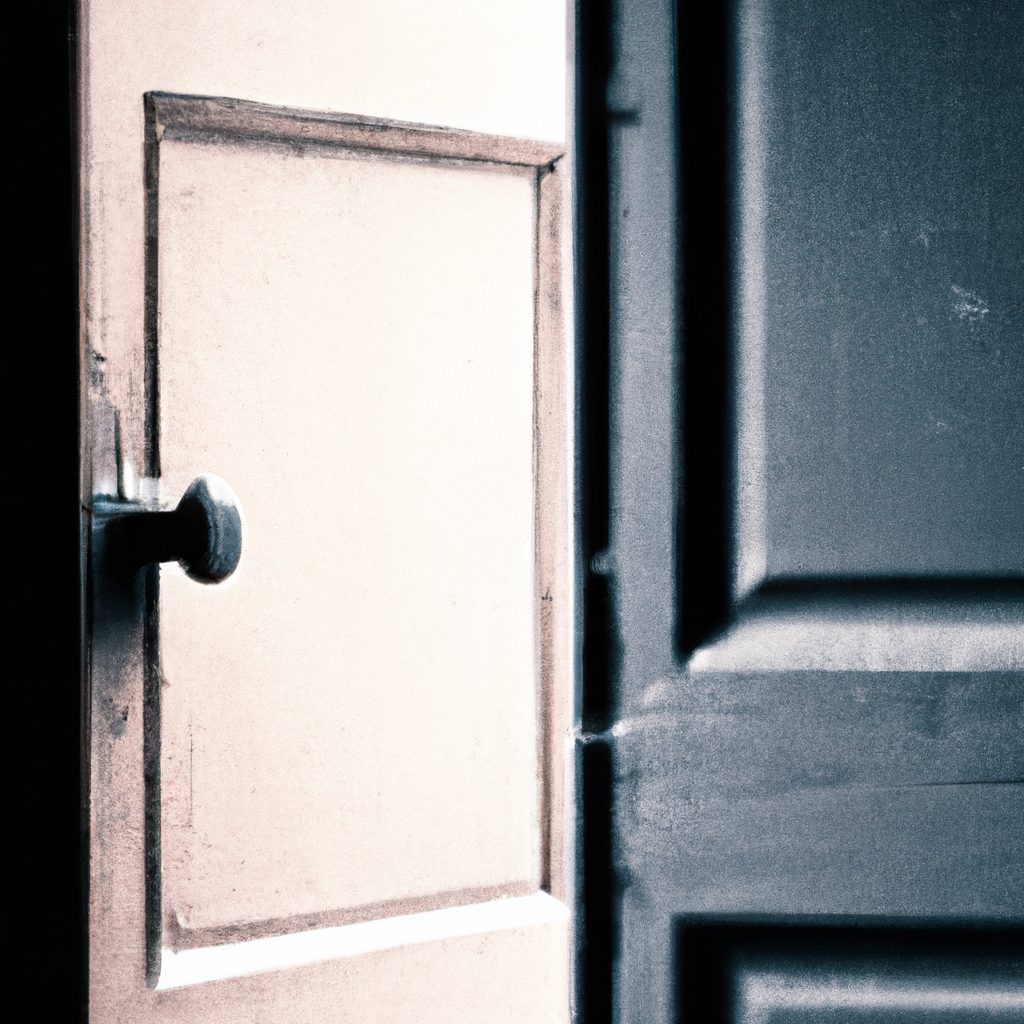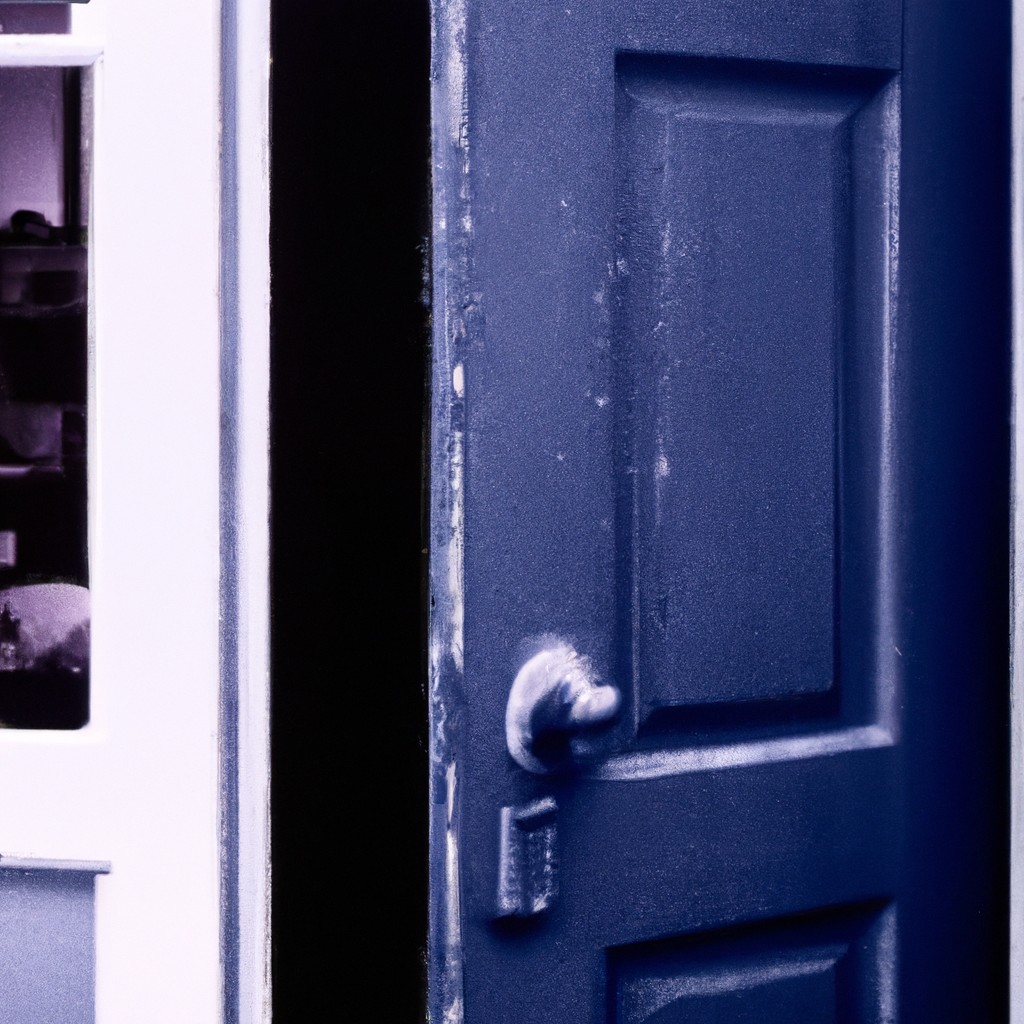
Are you navigating the complexities of dating someone who is still in the closet, while you proudly live your truth? It can be a delicate balance, but fear not, for there are ways to handle this situation with empathy and understanding. In this article, we will explore some strategies to maintain a healthy relationship while respecting your partner’s journey towards self-acceptance. After all, love knows no boundaries, and with the right approach, you can build a strong foundation of trust and support.

Understanding the Situation
Recognizing their journey
When you are dating someone who is in the closet while you are out, it is essential to recognize and respect their unique journey. Coming out is a personal and complex process, and everyone handles it differently. While you may have embraced your identity and feel comfortable being open about it, your partner may still be grappling with their own feelings of uncertainty, fear, or societal pressure. Understand that their decision to stay in the closet does not diminish their feelings for you; it is simply a reflection of their own personal circumstances and readiness.
Considering the impact on your relationship
Dating someone who is in the closet can undoubtedly have an impact on your relationship. It may lead to challenges such as limited public displays of affection, restricted availability for social events, or difficulty introducing them to your friends and family. It’s important to consider how these limitations may affect you and your connection with your partner. While it is natural to desire a relationship where you can fully share your love and pride, weighing these factors will help you better understand the dynamics of your relationship and make informed decisions about its future.
Assessing your own comfort level
Before embarking on a relationship with someone who is in the closet, it is crucial to assess your own comfort level with this situation. Reflect on your own needs, desires, and boundaries. Ask yourself if you are willing and able to navigate the complexities that may arise from being with someone who is not open about their identity. Consider if you have the patience and understanding to support them through their journey without compromising your own well-being. It’s essential to be honest with yourself about what you are prepared to handle in order to maintain a healthy and fulfilling relationship.
Communication and Empathy
Initiating an open conversation
To navigate a relationship with someone who is in the closet, it is vital to initiate open and honest conversations. Create a safe and judgment-free space for your partner to express their thoughts, fears, and concerns. Let them know that you are open to listening and understanding their perspective. Encourage them to share their reasons for staying in the closet and be prepared for a range of answers. By fostering open communication, you can strengthen the trust and connection between you and your partner.
Listening and validating their feelings
When your partner shares their thoughts and feelings, it is important to actively listen and validate their experiences. Understand that their journey may be filled with complexities and internal struggles. Resist the urge to dismiss or invalidate their emotions. Instead, offer empathy and understanding, acknowledging the unique challenges they face. Validating their feelings will create a supportive environment and allow them to feel heard and accepted.
Expressing your own needs and concerns
While it is crucial to listen and understand your partner’s feelings, it is equally important to express your own needs and concerns. Make sure to communicate your own boundaries and desires in a respectful and non-judgmental manner. Share your thoughts on what you envision for your relationship, taking into account the limitations imposed by their closeted status. By expressing your needs and concerns, you are actively participating in the relationship’s growth and fostering a foundation of open and honest communication.
Navigating Social Situations
Respecting their boundaries
When dating someone who is in the closet, it is critical to respect their boundaries. Understand that they may have valid reasons for wanting to keep their identity private, and it is essential to honor their decision. Be mindful of discussing your relationship openly in social settings, including on social media. Avoid outing them without their consent, as it can cause distress and harm to their well-being. Respect their privacy and support their choice to maintain discretion until they are ready to come out in their own time.
Being mindful of public displays of affection
Public displays of affection (PDA) can sometimes be challenging for couples where one partner is in the closet. While you may feel comfortable expressing your love openly, your partner might be more reserved due to their closeted status. It is essential to be mindful of their comfort levels when it comes to physical affection in public spaces. Discuss together what feels appropriate and considerate for both of you. Finding a balance that respects both of your needs will ensure a harmonious relationship built on mutual understanding and support.
Handling inquiries from friends and acquaintances
As you navigate your relationship, you may encounter inquiries from friends, acquaintances, or curious individuals about your partner’s identity. It is crucial to handle these situations with tact, respect, and discretion. Respect your partner’s privacy and refrain from sharing any information that could potentially expose their closeted status without their consent. Diplomatically deflect or redirect questions about your partner’s identity if they arise and prioritize respecting their boundaries throughout any conversations.
Providing Emotional Support
Creating a safe space
One of the most important things you can do for your partner who is in the closet is to create a safe and supportive space for them. Make it clear that you are a person they can trust and confide in without judgment or pressure. Be available to talk when they need someone to listen. By providing a safe space, you demonstrate your commitment to their well-being and create an environment where they can freely explore their identity at their own pace.
Encouraging self-acceptance
Supporting your partner in their journey towards self-acceptance is crucial when they are in the closet. Encourage them to explore their feelings and thoughts about their sexual identity, reassuring them that you accept and love them unconditionally. Help them recognize that their journey is unique and that there is no right or wrong timeline for self-discovery. Encouraging self-acceptance will empower them to embrace their true selves and may contribute to their decision to come out when they feel ready.
Offering reassurance and validation
Dating someone who is in the closet can be challenging at times, both for you and your partner. It is important to offer reassurance and validation regularly. Let your partner know that their feelings and experiences are valid, and that you are there to support them through their journey. Reassure them that you understand their decision to stay in the closet and emphasize that their decision does not impact the love and commitment you have for each other. Consistently validating and comforting your partner will strengthen your bond and help navigate the complexities of their closeted status.

Maintaining Confidentiality
Understanding the importance of privacy
Maintaining confidentiality is crucial when you are dating someone who is in the closet. Understand that their decision to not be open about their identity is deeply personal and should be respected. Recognize the potential risks they may face if their identity were to be exposed without their consent, such as discrimination or strained relationships with family and friends. Appreciating the importance of privacy will reinforce trust within your relationship and demonstrate your understanding and support.
Discussing boundaries around disclosure
It is essential to have open and ongoing conversations about boundaries regarding disclosure. Discuss with your partner what information can be shared and with whom. Respect their limits on what they are comfortable revealing, and be clear on the expectations for discretion. Establishing these boundaries will help protect their privacy, maintain trust, and avoid any unintended harm that could arise from sharing sensitive information.
Being discreet and considerate
As you navigate your relationship, always be discreet and considerate of your partner’s closeted status. Refrain from sharing any information, photos, or personal details that could potentially reveal their identity without their consent. Be mindful of your social media presence and avoid tagging or mentioning them in posts that could inadvertently expose their status. Being discreet and considerate will help protect your partner’s privacy and preserve the trust and intimacy between you.
Building Trust and Patience
Acknowledging their fear and vulnerability
When dating someone who is in the closet, it is essential to acknowledge their fear and vulnerability. Coming out can be an intimidating and emotionally charged experience, and your partner may need time to build the courage to face those challenges openly. Recognize the bravery it takes to confront social norms and express empathy towards their fears and concerns. By acknowledging their vulnerability, you can foster a stronger sense of trust and deepen your connection.
Being patient with their process
Patience is key when dating someone who is in the closet. Understand that your partner’s journey towards self-acceptance and coming out may take time. They may experience periods of self-doubt, fear, and uncertainty. It is crucial to be patient and allow them to navigate their process at their own pace. Avoid pressuring or rushing them into decisions they may not be ready for. By offering patience and understanding, you demonstrate your unwavering support and commitment to their well-being.
Consistently reassessing the relationship
As you navigate a relationship with someone who is in the closet, it is important to consistently reassess the dynamics of the relationship. Reflect on whether the limitations imposed by their closeted status align with your own needs and goals. Discuss with your partner if there are any areas where the relationship can grow and evolve. By regularly assessing the relationship, you can ensure that both you and your partner are on a path that aligns with your long-term happiness and well-being.
Seeking Professional Guidance
Considering couples therapy
If you find that the challenges of dating someone in the closet are becoming overwhelming, couples therapy can provide valuable support. A therapist can help you and your partner navigate the complexities and emotions involved in dealing with a closeted partner. They can facilitate open communication, offer guidance on managing expectations, and provide tools to enhance your relationship. Couples therapy may give you both a safe space to address any concerns and work towards finding healthy resolutions.
Exploring individual counseling
Individual counseling can be beneficial for both you and your partner when one is in the closet. It can provide a safe and confidential space for each of you to process your own emotions, fears, and challenges related to the relationship. Working with a counselor individually can help you gain insight into your own needs, boundaries, and coping strategies. By exploring individual counseling, you and your partner can each seek the support you need to navigate the complexities of your relationship.
Utilizing LGBTQ+ support resources
The LGBTQ+ community offers an array of support resources that can be valuable for both you and your partner. Local LGBTQ+ organizations, online communities, and helplines can provide information, guidance, and a sense of belonging. Connecting with others who have experienced similar situations can offer invaluable support and understanding. By utilizing these resources, you and your partner can access the assistance and guidance that will contribute to your individual and collective well-being.
Personal Well-being
Prioritizing self-care
When involved in a relationship with someone who is in the closet, it becomes even more important to prioritize your own self-care. Engage in activities that bring you joy, maintain a healthy work-life balance, and nurture your physical and emotional well-being. By taking care of yourself, you can better support your partner and maintain a healthy perspective on the relationship.
Finding support in your own network
Reach out to your own support network for guidance and reassurance as you navigate your relationship. Friends, family, or fellow LGBTQ+ individuals can offer valuable perspectives and help you process your own emotions and experiences. Sharing your journey with trusted individuals will provide support and understanding when you need it most.
Understanding your limits
It is crucial to recognize and understand your own limits when dating someone in the closet. Regularly assess your emotional well-being and take note of any signs of strain or unhappiness. It is okay to prioritize your own needs and walk away from a relationship that no longer brings you joy or negatively impacts your mental health. Remember that you deserve happiness and a relationship where both partners can be open and authentic.
Evaluating Long-Term Potential
Assessing compatibility and shared goals
When dating someone who is in the closet, it is important to evaluate the long-term compatibility and shared goals of the relationship. Reflect on whether your aspirations and values align, considering both your personal goals and your desires for a future together. Assess if the limitations imposed by their closeted status align with the life you envision. Open and honest conversations about long-term compatibility are essential in making informed decisions about the sustainability of your relationship.
Considering the impact on your future
It is crucial to consider the impact of being in a relationship with someone who is in the closet on your own future. Reflect on whether their closeted status may restrict certain aspects of your life, such as introducing them to your friends and family or making future plans together. Consider if you are willing to bear these limitations in the long term. Assessing the impact on your future will help guide your decision-making process and ensure that your own dreams and aspirations are not compromised.
Deciding if the relationship is sustainable
Ultimately, you must decide if the relationship is sustainable given the circumstances of your partner’s closeted status. Consider the emotional toll it takes on both of you and evaluate if the limitations and challenges outweigh the love and connection you share. This decision should not be taken lightly and may require deep introspection and soul-searching. Trust your instincts and prioritize your own well-being in making a decision that will ultimately lead to your happiness and fulfillment.
Knowing When to Walk Away
Recognizing unresolvable conflicts
Despite your love and commitment, there may come a point where conflicts and challenges become unresolvable. If you find that the limitations imposed by your partner’s closeted status are causing significant strain and unhappiness in the relationship, it may be time to consider walking away. Recognize that you deserve a relationship where both partners can freely express their identity and navigate the world together with open authenticity. Understanding when a relationship has reached its limit is an act of self-love and self-preservation.
Assessing the toll on your mental health
Constantly navigating a relationship where one partner is in the closet can take a toll on your mental health. If you find yourself experiencing anxiety, depression, or a decline in overall well-being, it is essential to prioritize your mental health. Assess the impact the relationship has on your emotional well-being and be honest with yourself about whether it is sustainable in the long term. Your mental health should always be a top priority, and making the decision to walk away can be an act of self-care.
Making a decision that prioritizes your well-being
Ultimately, the decision of whether to continue or end a relationship with someone who is in the closet should prioritize your own well-being. Consider your happiness, your dreams, and your aspirations. Reflect on what you need in a relationship to feel fulfilled, loved, and supported. Trust yourself to make the best decision for your own life, knowing that you deserve a relationship that celebrates and embraces your authentic self.




